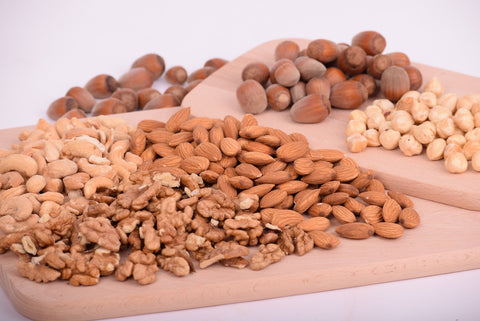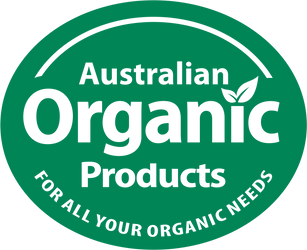
Balanced Diet: What Is It and How to Achieve It?
In every lecture and every advert on healthy living, a balanced diet is mentioned, but what does that actually mean? We're always told that healthy eating is essential for good overall health but with a huge variety of foods out there, the five food groups, and tonnes of different 'healthy' diets to choose from, it's hard to know what you're actually supposed to eat!
General consensus is that the best diet to eat nowadays is a whole plant-based diet - meaning you eat only small amounts of meat, fish, and dairy while filling your plate with whole foods like fruit, vegetables, nuts, seeds, legumes, and whole grains.
Every version of a healthy diet is designed to ensure that your body gets all of the nutrients it needs for proper functioning and to keep it in good working order. A healthy diet is good for nutrition and good health so understanding how you can achieve a healthy and balanced diet is the best thing you can do for your body.
We've been taking a look at the definition of what a balanced diet really is, why it is so important, and how you can learn to eat in a balanced way. To find out more, keep reading now.

What is a balanced diet?
So, what is a balanced diet?
A balanced diet basically means getting enough of all of the healthy foods that your body needs to work properly. It means giving your body all of the nutrition, from vitamins and minerals to macronutrients like proteins and carbohydrates, that your body needs for proper functioning.
A balanced diet should always be accompanied by regular exercise and quality sleep for good overall health, but getting your diet right may be the first step to this.
A balanced diet does include all food groups, but they are needed in different quantities. To follow a whole, plant-based diet, which is recommended by most nutritionists, you will need to eat lots of plant foods, like fruits, vegetables, nuts and seeds, and whole grains like brown rice, while reducing your intake of meat, fish, and dairy. You can get all the nutrients your body needs from this type of diet and it is considered significantly low in saturated fat.
Some people choose to supplement a balanced diet with multivitamins, mineral supplements, and superfood powders, to ensure they're getting all of the essential nutrients their body needs.
What is a food group?
When discussing a balanced diet, the term 'food group' will inevitably come up. A food group is basically the name a group of foods is given based on shared qualities. The five food groups are fruit and veg, starchy foods (carbohydrates), dairy, protein, and fat.
Fruit and vegetables are a self-explanatory category and are one of the most important of the five good groups for you to eat. You should ensure you are eating at least five a day, if not more. Fruit and veg come with lots of fibre, vitamins, and minerals - all of which are very important for your body. Dried fruit and legumes are usually counted under this title.
Starchy foods, or carbohydrates, come in two different groups, processed foods, like white pasta and bread that comes from refined grains, and whole grains, like brown rice, oats, wholemeal bread, brown pasta and spelt pasta. It is recommended that you eat mostly whole grains when it comes to the starchy foods category as they're better for your body and contain unsaturated fats, rather than saturated fat. These starchy foods tend to give us the energy we need throughout the day, as well as offer fibre and healthy fats too.
Dairy, though recommended in smaller quantities nowadays, is best for protein and vitamins, especially for anyone who doesn't eat meat. Dairy foods include milk, cheese, and yogurt. For those who cannot digest dairy, there are dairy-free alternatives, including soy milk, rice milk, almond milk, and cheeses and yogurts made from them.
Protein is used a lot in muscle repair and provides energy to the body too. Protein can be found in meat and fish, though care should be taken to not consume too much of these, especially red meat, as they can be high in saturated fat.
And fats, a food group which for years was shied away from, is now changing within a balanced diet. While it was previously thought that all fats were bad, it is now recommended that you consume a small number of healthy fats, like those found in olive oil and sunflower oil, as well as nuts and seeds. These healthy fats are unsaturated and very good for heart health.
It should be noted that it is still advised against eating lots of saturated fats, like the kind found in junk and fast food. You should also avoid consuming too much sugar, like sweets and chocolate but also like the sugar in fruit juice, and you should limit alcohol consumption.

Why is healthy eating important?
A healthy and balanced diet entails lots of different food groups in differing amounts, but why is it so important for you to follow it?
Healthy eating is important for your overall health for a number of reasons. These include:
- Protecting your body against noncommunicable diseases - Diseases like heart disease, stroke, cancer, and diabetes are all made much less likely if a balanced and healthy diet is followed. While a good diet can cure or totally prevent this kind of disease, the chances are significantly reduced.
- Good heart health - As discussed above, healthy fats that are found in a balanced diet are very good for heart health and good heart health can protect against a number of cardiovascular diseases.
- Better mood - Foods with a high glycemic index are more likely to cause a low mood, anxiety, and depression. Reducing the number of these foods that you eat can have a positive impact on your mood.
- Better digestive health - Your digestive system is responsible for getting all of the food you consume through your body and along the way, all of the nutrients your body needs find their place. A good digestive system is important for overall health and a plant-based diet filled with whole grains tends to be high in fibre. Fibre is essential to good digestive health.
- Strong bones and teeth - Getting the right vitamins into your diet can ensure your bones and teeth are healthy and strong. Weak bones can lead to problems later in life and so eating better for as long as possible can prevent problems later on in life.
- Good overall health - When paired with regular exercise and quality sleep, a balanced diet can help to boost your overall health and make you feel good. In improving good physical health, you will likely also improve mental health too. Eating well can improve physical and mental health.
How to achieve a healthy diet
So, a balanced diet seems like a pretty good idea at this point and you're probably wondering how you can begin to follow a healthy and balanced diet. Below, we've listed a few of our top tips for following a better diet.
Prepare homemade meals
One of the biggest hindrances to a healthy diet is the number of processed foods on the market now. Made for convenience, these foods tend to be loaded with salt, sugar, and saturated fats and even when they claim to be healthy or appear that way, you are still likely consuming lots of empty calories.
Preparing your own meals at home means that you know exactly what is going into them and you can control the quantities to ensure you're not overeating. Home prep also means you can prepare in bulk so that you're always stocked up.
If you struggle to come up with recipes, look out for plant-based recipes books to get some ideas.
Make a plan
Making a weekly meal plan with added snacks is one of the best ways to achieve a balanced diet. If you plan it out beforehand, you can make sure you're hitting all of your nutrients and spreading them out across the day.
A plan can also help you stick to eating better because you know when and what you're going to be eating, so you won't eat out of boredom.
Eat plant-focused meals
When you're making up a meal, you should try to ensure that at least two-thirds of the plate is taken up with whole, plant-based foods. These foods will nourish your body and help to keep you feeling fuller for longer, stopping you from overeating.
Avoid sugary drinks
One of the biggest pitfalls people have when trying to eat healthily is consuming empty calories in their drinks. Avoid fizzy drinks and limit any fruit juices to one glass per day to ensure you're not drinking too much sugar!
Keep healthy snacks
Many people assume that when you start eating a more balanced diet, you need to stop snacking but it's actually not the case. Eating smaller meals and allowing for healthy snacks in between, like popcorn, dark chocolate, roasted chickpeas, and almonds, can mean you don't binge eat when it comes time for your meal.

Conclusion
A balanced diet is a diet that meets all of your body's nutritional needs. It involves the five food groups eaten in different quantities to match the nutritional needs of your day-to-day life. Eating a balanced diet is good for your physical and overall health and can be achieved in a few different ways.
If you're trying to eat a more healthful diet, check out our site for some great food choices now.
Frequently Asked Questions
What is in a balanced diet?
A balanced diet is a diet that meets all of your body's nutritional needs and helps it to function properly. The recommended balanced diet is high in plant foods like whole grains, fruit and veg, and low in meats and dairy. You should also aim to get some healthy fats, like the kind found in olive oil, nuts, and seeds.
What are the 7 things you need for a balanced diet?
For a balanced diet, you need all five food groups, water, and exercise. The five food groups split into fruit and veg, carbs, protein, fats, and dairy, are needed in varying quantities, with whole-grain carbohydrates and fruit and veg the most important and fats and dairy needed in only small numbers. A balanced diet should give your body all of the essential nutrients it needs and when coupled with exercise, it can help to improve your overall health.
What are three foods to avoid?
For a balanced diet, there are some foods you should try to eat very little of. These are sugary foods like sweets and chocolate, foods that are high in saturated fats, and red meat. These products are effectively empty calories and while they can help you to feel full and give you energy, if eaten in too high a number, the bad will outweigh the good.
What is the healthiest breakfast?
Healthy breakfasts should have lots of fibre in them. This means choosing a fibre-filled breakfast cereal or wholemeal bread. Avoid sugary cereals as these will not nourish you as whole-grain cereals will. You could also eat eggs for their protein value and top toast off with fruit, like banana and avocado, to get in some other food groups.

Leave a comment